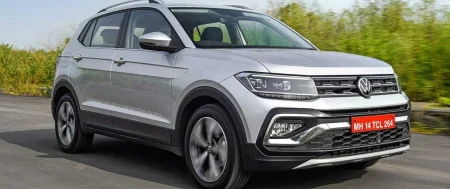Explore why buying an old car is a smart choice, from cost savings to low depreciation and insurance.
Table of Contents
Introduction
When it comes to buying a car, we often get drawn to the sleek design and fresh tech features of brand-new models. But, what if you could get all you need from an older car? For many drivers, buying an old car is a smart, practical decision that brings not just affordability but several unexpected advantages. Let’s dive into why opting for an older car could be a surprisingly wise choice.

Benefits of Buying an Old Car
Lower Cost
One of the clearest advantages of buying an older car is, naturally, the cost. Used cars are typically more budget-friendly than new ones, and with a bit of research, you can often find an older model with low mileage, still running in top condition. This makes owning a car possible without needing a hefty down payment or taking on a substantial loan.
Reduced Depreciation
Cars lose a significant portion of their value the moment they’re driven off the lot—up to 20% in the first year alone! When you buy a used car, you’re essentially skipping over the initial depreciation hit, so if you decide to sell it in a few years, you won’t lose as much money.
Affordable Insurance Rates
Insurance for an older vehicle is generally more affordable. Since an old car is valued lower than a new one, the cost to repair or replace it is reduced, translating into cheaper monthly premiums. This can be a big factor in keeping your ongoing costs manageable.
Proven Reliability
Modern vehicles are built to last, and with a good maintenance record, an older car can still offer years of dependable driving. Many older cars have a strong reputation for reliability, and you’ll find that popular models have plenty of available parts and expert advice online.
Key Reasons to Opt for an Older Car
Value for Money
By buying an old car, you can often afford a higher-end model with features that might be out of reach in a new car at the same price point. From leather seats to advanced safety systems, you’ll get more for your money with an older, well-maintained car.
Less Financial Stress
New cars come with high price tags, which can bring the stress of managing payments and debt. Opting for an older car eases that burden, allowing you to enjoy the experience of driving without financial pressure.
Easier Customization
Older cars tend to have more accessible designs, making it easier and more affordable to upgrade or modify them. Whether it’s changing the sound system, adding custom rims, or personalizing the interior, you have more freedom to make the car truly yours.
Financial Advantages of Old Cars
Lower Monthly Payments
Since old cars are priced lower, financing them tends to be much more affordable. Monthly payments are generally less than they would be for a new vehicle, allowing you to save or spend your money on other priorities.
Better Financing Options
Banks and lenders often provide competitive rates on used car loans, and if you have a good credit history, you may be able to secure low-interest rates that reduce the overall cost of owning the car.
Practical Advantages of Older Cars
Easy Maintenance and Repair
Older models tend to have simpler mechanics, making it easier to maintain and repair them. Many owners of older vehicles find that minor issues can be fixed at home without the need for high-tech diagnostic tools required for newer models.
Easily Accessible Parts
Replacement parts for older cars are generally easier to find and cheaper. Whether through online sellers or local scrapyards, it’s simpler to track down the necessary parts for repairs or upgrades.
Broader Mechanic Knowledge
Since older car models have been around longer, most mechanics are familiar with their ins and outs. This broad knowledge base can mean quicker and more affordable repairs, saving you both time and money.
Environmental Benefits
Reducing Waste and Recycling
Buying an old car is, in many ways, a form of recycling. Instead of sending the vehicle to the scrapyard, you’re extending its life, reducing the waste generated by discarded cars and spare parts.
Lower Carbon Footprint in Manufacturing
Manufacturing new cars has a significant environmental impact. By choosing an old car, you’re effectively avoiding the additional carbon emissions associated with the production of a new vehicle. It’s an eco-friendly choice that supports sustainability.
Tips for Buying an Old Car
Research the Model and Brand
Before buying, research the model and make of the car you’re interested in. Look for reviews, common issues, and owner feedback. Some models are more reliable than others, and knowing this can help you avoid future headaches.
Check for Service Records
A well-maintained car with a complete service history is usually a safe bet. Service records give you a glimpse into how well the car was treated by previous owners, ensuring you’re making a sound investment.
Get a Professional Inspection
It’s wise to get a pre-purchase inspection done by a trusted mechanic. They can identify any potential issues, saving you from unexpected repairs down the line. It’s worth the peace of mind.
Consider Ownership Costs
Apart from the initial cost, consider how much the car will cost to run. Older cars might need a bit more maintenance, but if they’re economical to repair and insure, it could be well worth it.
Conclusion
Choosing to buy an old car is a decision that can be both financially and practically rewarding. With lower costs, reduced depreciation, and an array of practical benefits, an older car can offer value far beyond its price tag. Plus, with the right model, you may find yourself with a reliable, stylish, and efficient ride that meets your needs without breaking the bank. Whether you’re looking to save money, avoid debt, or reduce your environmental impact, an old car might just be the perfect choice.
FAQs
What is the best age for buying a used car?
A car that’s around 3-5 years old can offer a good balance of value and reliability, as it’s past its initial depreciation but still relatively modern.
Is buying an old car a safe option?
Yes, with a thorough inspection and a good maintenance history, an old car can be just as safe as a new one.
How can I check the history of a used car?
Services like Carfax provide detailed history reports, including past accidents, repairs, and ownership details.
Do old cars need more repairs than new cars?
Typically, older cars may require more maintenance, but they’re often cheaper to repair than newer models.
Are older cars better for the environment?
In many ways, yes! Extending the life of an existing car reduces manufacturing emissions and waste, supporting a sustainable approach to car ownership.





